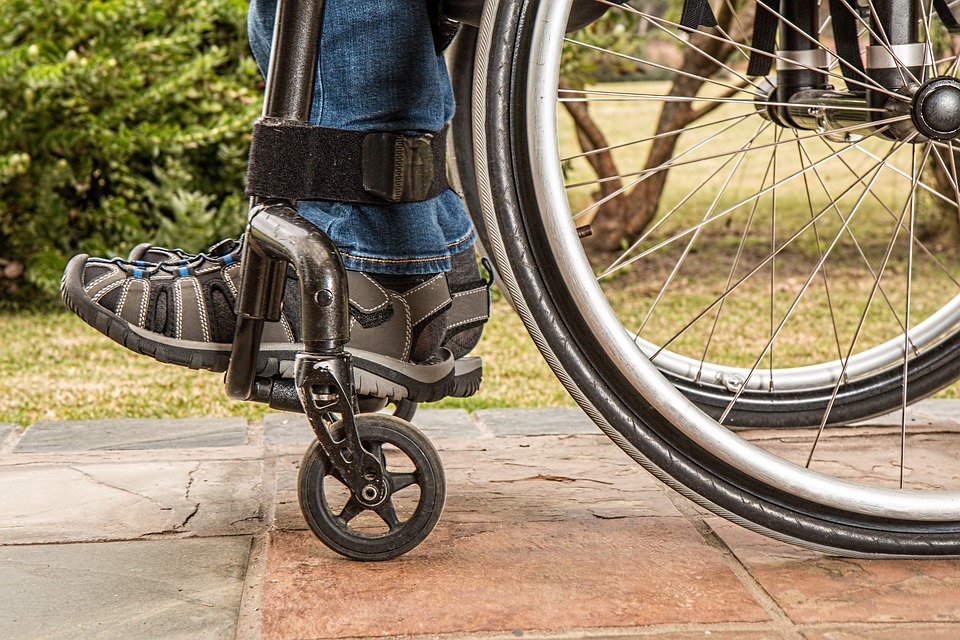Fill our form to download your free research report, written by Dr Mark Hawker.
Occupational Therapy: Who, What, Where, Why and When?
The effects of ageing, illness, injury or a disability means that ordinary, everyday tasks such as washing yourself or getting out of bed can become difficult to do. With the help and support of an Occupational Therapist, however, people are able to regain the skills they need to be able to complete these tasks…

Who are Occupational Therapists?
An OT or Occupational Therapist provides support to children and adults of all ages who are living with a physical, mental or social disability which affect their capability to carry out everyday activities.
Occupational Therapists work with their patients to help maintain, regain or improve their abilities to keep their independence through different techniques, such as, changing their environment or providing them with vital equipment.
For example, do you have problems getting into bed at night? If so, an Occupational Therapist may think it is beneficial to provide you with a piece of equipment such as a Leg Lifter, to help you get in and out of bed with ease.
What is Occupational Therapy?
Occupational Therapy is a client-focused healthcare profession which promotes the health and well-being of patients. An OT will usually have completed an approved Occupational Therapy degree and will be registered with the Health and Care Professions Council (HCPC).
Occupational Therapy uses the ‘occupations’ of work, self-care and leisure activities to increase their patient’s independence and development.
The main objective of occupational therapy is to enable individuals to participate and be able to carry out everyday life activities.
Why are Occupational Therapists so important to improving people’s lives?
Occupational Therapists are hard-working and caring individuals who provide care and support to their patients to help them overcome barriers which are preventing them from doing everyday activities. Their support increases individuals independence and satisfaction in all aspects of their life.
They use their knowledge, critical thinking and hands-on skills to help others and have an interest and commitment in helping people to live a more fulfilled life.
OTs are able to identify and resolve difficulties a person has with everyday tasks by either teaching a different way to complete an activity, recommending changes or providing devices which will make the task easier.
For example, an OT may recommend a Bathing Cushion if their patient is having difficulties washing because they can’t get in or out of a bath easily.
Where do Occupational Therapists work?
Occupational Therapists work in a variety of different locations and settings. These will include hospitals, rehabilitation centres, nursing facilities, outpatient clinics, private practice, school systems, private organisations, industry and community agencies.
When should you contact an OT?
You should think about getting in touch with an OT when you are noticing that you are having difficulties completing everyday tasks, whether this is because of ageing, illness, injury or living with a disability.
How to get in touch with an OT?
If you’d like to get in touch with an Occupational Therapist please go and speak to your GP, a nurse or a health or social care professional for a referral.
You can also go through your local clinical commissioning group (CCG) or local authority social services department.
If you do not want to go through the NHS or local authority, you can contact an occupational therapist directly. The British Association of Occupational Therapy (BAOT) are the professional body for occupational therapists and work in a wide range of areas across the UK.
- September 08, 2017
- Occupational Therapists













Feedback re Occupational Therapy information by Mangar.
I suggest replacing the generic photograph above of a healthcare worker teaching physiotherapy exercises to an older lady, with a real occupational therapist in a home setting demonstrating the use of mobility aids for independent living. The photograph only perpetuates the misconception that occupational therapists are physios by another name.
Under the section “Where do Occupational Therapists work” you appear to have missed out that a large number of OT’s work in Adult Social Care a vital service to communities and the public in general
hi sorry just had a quick read and some suggestions
Is there such a thing as social disability
…..are hard-working and caring individuals who provide care
it sounds a bit patronising – hard working and caring – as not all of us may be both or either!
…Also we don’t provide care
…Healthcare and Care Professions Council (HCPC). – NOT CORRECT – sorry it is
Health and Care Professions Council (HCPC)
there is no mention of the work we do in retraining, only compensation is mentioned here, what about rehabilitation?
‘OTs are able to identify and resolve difficulties a person has with everyday tasks by either teaching a different way to complete an activity, recommending changes or providing devices which will make the task easier.’
I agree with Sharon about the need to include rehabilitation. Also, I think the photo is misleading – it looks more like Physio style rehabilitation. Our rehab usually involves every day tasks which we ‘prescribe’ which the person is capable of doing now and which stretch their abilities a bit. We are excellent at analyzing every day activities and gradually increasing the complexity of the activities we prescribe. That’s our form of rehabilitation.